Today’s readings
This set of readings always makes me chuckle just a little bit. Back in my second assignment, before I became a pastor, I was assigned to my home parish, which is a bit unusual. And the first Sunday I was there, these readings we have today were the readings that Sunday: “A prophet is not without honor except in his native place…”! Talk about a prophecy of doom! Thanks be to God, it all worked out just fine.
I often wonder how people get through the hard times of their lives if they don’t have faith. We can all probably think of a time in our lives when we were sorely tested, when our lives were turned upside-down, and, looking back, we can’t figure out how we lived through it except for the grace of our faith. During the course of my priesthood, I have been present to a lot of people who were going through times like that: whether it be illness or death of a loved one, relationship struggles, job issues, or financial struggles, or a host of other maladies. Some of them had faith, and some of them didn’t. It was always inspirational to see how people with faith lived through their hard times, and very sad to see how many who didn’t have faith just broken when their lives stopped going well.
That’s the experience that today’s Liturgy of the Word puts before us, I think. Let’s look at the context. In last week’s Gospel, Jesus has cured two people miraculously. He actually raised Jairus’s twelve-year-old daughter from the dead, and he cured the hemorrhagic woman, who had been suffering for twelve years. So both stories had occurrences of the number twelve, reminiscent of the twelve tribes of Abraham, and later the Twelve Apostles, both of which signify the outreach of God’s presence into the whole world. So those two miraculous healings last week reminded us that Jesus was healing the whole world.
But this week, we see the exception. This week, Jesus is in his hometown, where he is unable to do much in the way of miracles except for a few minor healings. Why? Because the people lacked faith. And this is in stark contrast to last week’s healings where Jairus handed his daughter over to Jesus in faith, and the hemorrhagic woman had faith that just grasping on to the garments of Jesus would give her healing. Faith can be very healing, and a lack of it can be stifling, leading eventually to the destruction of life.
We see that clearly in the first two readings today. First Ezekiel is told that the people he would be ministering to would not change, because they were obstinate. But at least they’d know a prophet had been among them. Contrast that with Saint Paul’s unyielding faith in the second reading to the Corinthian Church. Even though he begged the Lord three times to relieve him of whatever it was that was his thorn in the flesh, he would not stop believing in God’s goodness. Much has been said about what Saint Paul could possibly mean by this “thorn.” Was it an illness or infirmity? Was it a pattern of sin or at least a temptation that would not leave him alone? We don’t know for sure, but this “thorn” makes Saint Paul’s story all the more compelling for us who have to deal with our own “thorns” in our own lives. Saint Paul’s faith led him to be content with whatever weakness or hardship befell him, and he came to know that in his weakness, God could do more and thus make him stronger than he could be on his own. That assurance gives us hope of the same grace in our own struggles.
We people of faith will be tested sometimes; that’s when the rubber hits the road for our faith. Knowing of God’s providence, we can be sure that he will lead us to whatever is best. And our faith can help us to make sense of the struggles and know God’s presence in the dark places of our lives. People of faith are tested by the storms and tempests of the world, but are never abandoned by our God. Never abandoned.
Let’s pray with this notion today. Take a moment to quiet yourself, close your eyes if that works for you…
Take a moment now to think of whatever thorn is in your side. Maybe it’s illness or infirmity, or a temptation that won’t go away, an uneasiness about something going on in your life, worry about yourself or a family member. Whatever that is, bring that to mind and tell Jesus about it. Yes, he knows your needs, but he wants to hear you say it and put it in his merciful hands…
Now picture putting that need, that thorn, in Jesus’ hands. Give it up and stop holding on to it. Let go of whatever hold that thorn has on you…
Take a moment now to pray to Jesus in your heart, using your own words. Tell him that you trust him to make of this thorn whatever he wants it to be. Tell him that you trust in his healing, and that you will stop holding on to the way you want it to work out. Ask him to take the burden from you and promise not to take it back…
Repeat this after me: Jesus, I trust in you. Jesus, I give you my burdens. Jesus, I will accept healing in the way you want it for me. Jesus, I trust in you.
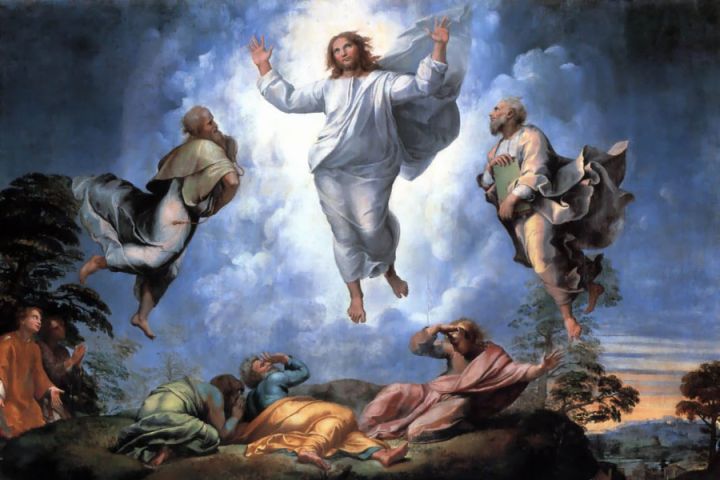


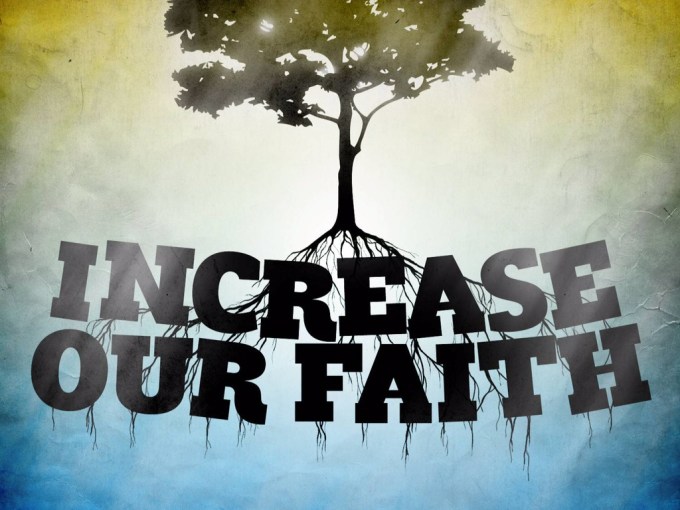

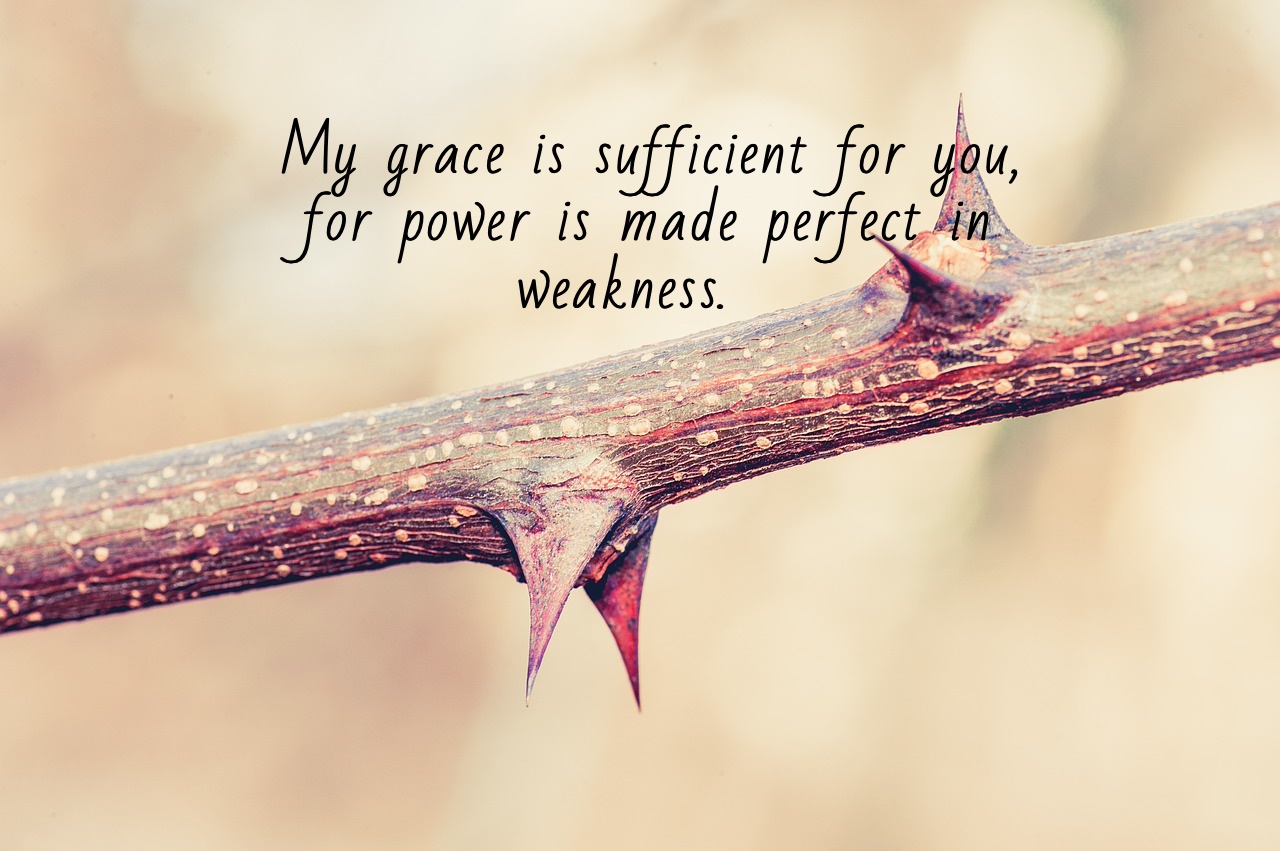

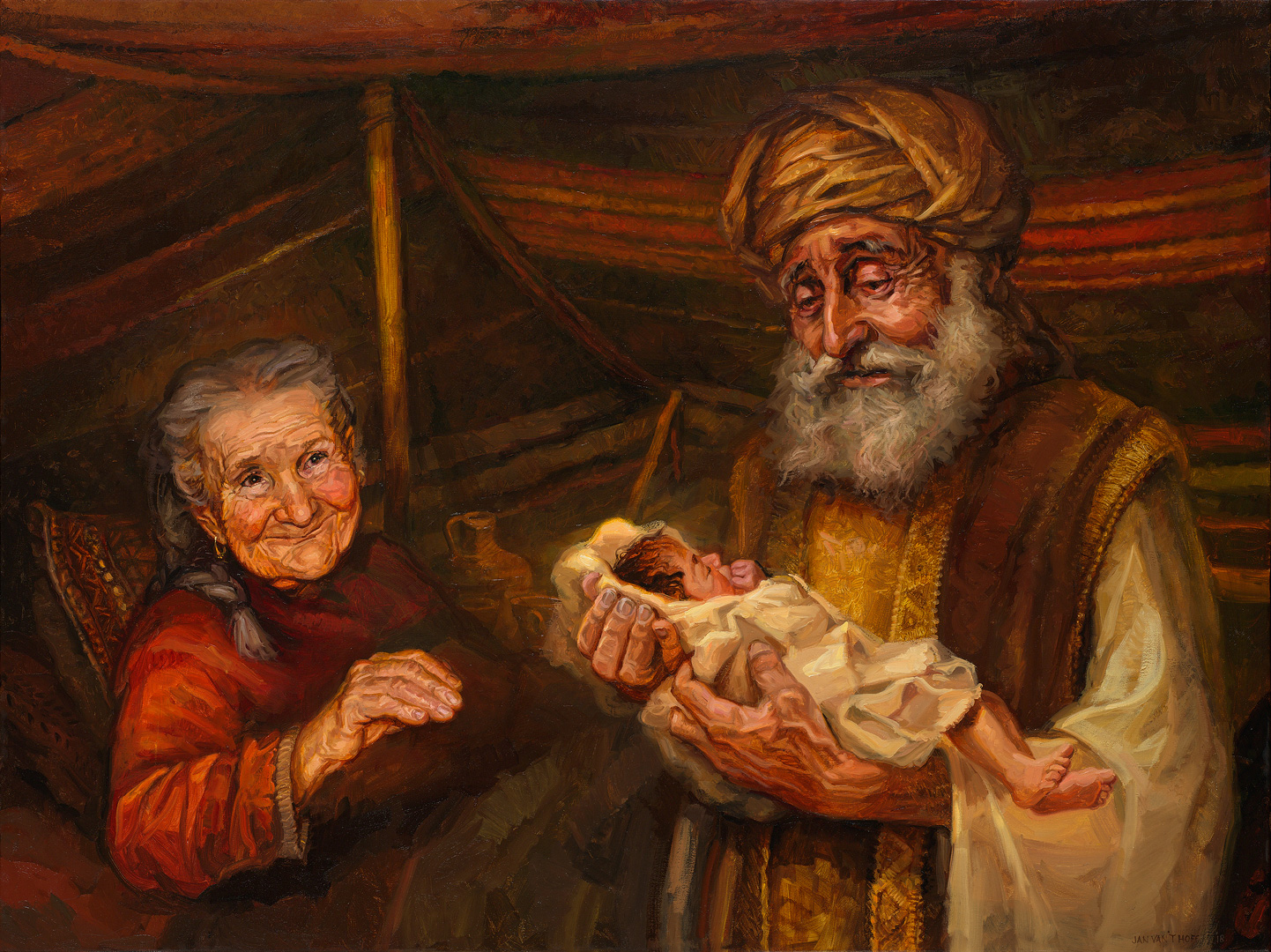

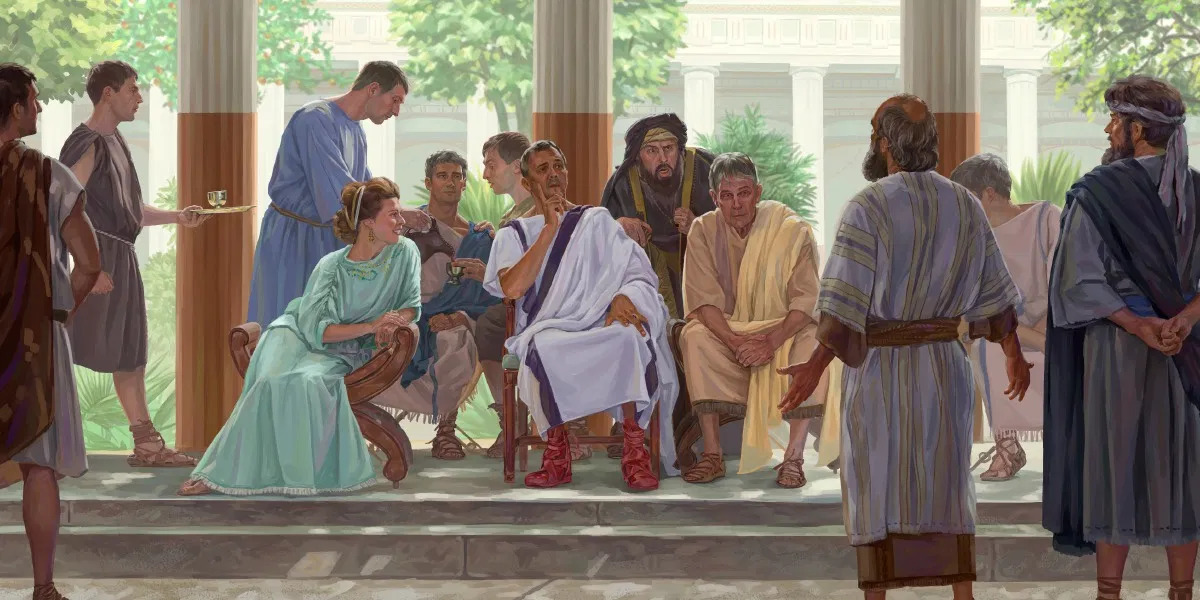
You must be logged in to post a comment.